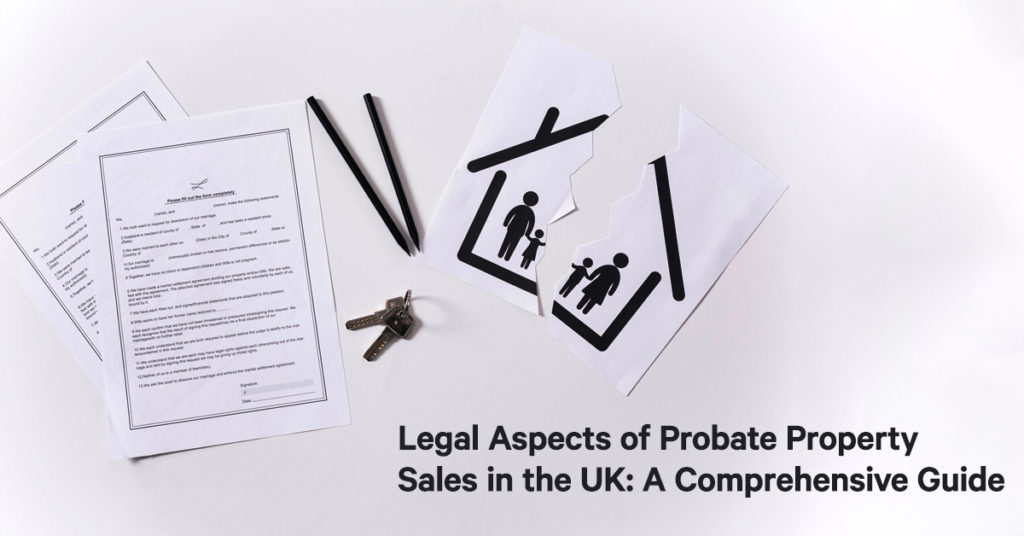
Navigating the complex world of probate can be daunting, especially when it involves the sale of a deceased person’s property. However, understanding the legal aspects of probate property sales is crucial for executors, beneficiaries, and potential buyers. In this comprehensive guide, we’ll dive into the intricacies of these legal aspects of probate property to help you make informed decisions during this challenging process.
1. What is Probate Property?
Probate property refers to assets, particularly real estate, that belonged to a deceased person. Before assets can be distributed to heirs or sold, they may need to go through probate. This ensures that the deceased’s debts and taxes are paid, and assets are distributed according to the deceased’s will or, in the absence of a will, the law.
2. The Legal Aspects of Probate Property – Initial Steps
One of the primary legal aspects of probate property is obtaining the Grant of Probate or Letters of Administration (if there’s no will). This document, issued by the Probate Registry, authorises the executors or administrators to manage the deceased’s estate, which includes selling property.
When a property is part of the probate process:
- Valuation: Before any sale, the property must be accurately valued. This valuation becomes part of the Inheritance Tax assessment.
- Tax Implications: Once the property is valued, any Inheritance Tax owed must be calculated and paid. The amount depends on the overall value of the estate and any available reliefs or exemptions.
3. Selling Probate Property
With the correct permissions in place, the executor or administrator can proceed with the sale:
- Market Listing: As with any other property, probate properties can be listed on the open market. They can be sold through estate agents or auctioned, depending on what is deemed most suitable for the estate.
- Contracts and Exchange: Once a buyer is found, and a price agreed upon, a contract is drafted. The exchange of contracts signifies a legally binding agreement between the seller and buyer. At this point, the buyer pays a deposit, and a completion date is set.
- Completion: On the completion date, the balance of the purchase price is paid, and the property’s ownership is transferred to the buyer. The proceeds from the sale will go into the estate and used to settle debts, pay any taxes, and finally, distribute to the beneficiaries.
4. Key Legal Aspects of Probate Property Sales to Remember
The unique nature of probate sales means there are some distinct legal aspects to consider:
- Potential Delays: The probate process can be lengthy, which can impact the timeframe for selling the property. Potential buyers must be aware that the legal aspects of probate property sales often cause delays compared to standard property transactions.
- Transparency Requirement: Executors and administrators have a legal duty to get the best price for the property. This ensures that beneficiaries receive the maximum inheritance. Regular property valuations and transparent sale processes are essential.
- Property Maintenance: Until the property is sold the executor or administrator is responsible for ensuring it’s well-maintained and insured. This ensures that its value doesn’t diminish, affecting the overall value of the estate.
5. Potential Challenges
Navigating the legal aspects of probate property can be challenging. Some potential hurdles include:
- Disputes: Beneficiaries might disagree with how the property is being managed or the sale price. Clear communication and transparency are crucial to avoid disputes, or to resolve them if they arise.
- Property Condition: Often, probate properties may have been unoccupied for a long time, leading to maintenance issues. Executors should ensure they are addressed to achieve a good sale price.
- Market Fluctuations: The probate process can take time, during which property market conditions might change. Executors must remain aware of the market trends to make informed selling decisions.
6. Conclusion
The sale of a property in probate requires careful navigation of its unique legal landscape. While the fundamentals of selling remain similar to any property sale, the legal aspects of probate property sales bring about specific responsibilities and potential challenges for executors and administrators.
Whether you’re an executor, a beneficiary, or a potential buyer, understanding the legal aspects of probate property is crucial. It ensures that the process is handled correctly, ethically, and in the best interests of all parties involved. By arming yourself with the correct information, you can approach probate property sales with confidence and clarity.
Here to help
Navigating probate can be complex, but we’re here to help. Complete our contact form, and we’ll aim to call you back within a few hours. Alternatively, reach out directly on 01603 552028 or email us at hello@www.probatesonline.co.uk. Don’t navigate this journey alone; let our experts guide you.
